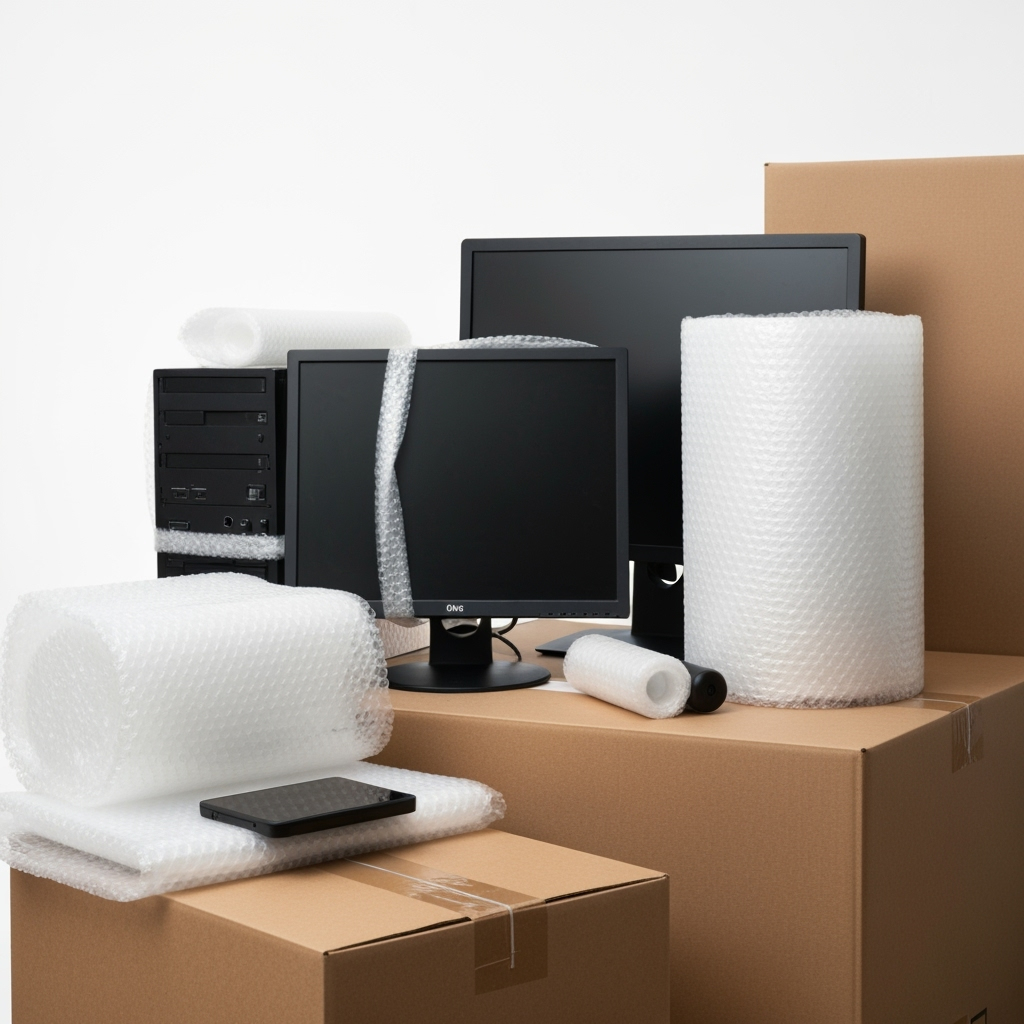
Understanding the Challenges of Moving Electronics
Moving your valuable electronics requires special attention and care. Whether you’re relocating your home office setup or transferring your entire entertainment system, proper planning and protection are essential to ensure your technology arrives safely at your new destination.
Pre-Move Preparation: Essential Steps
Before packing any electronic equipment, follow these crucial preparation steps:
- Back up all important data to cloud storage or external drives
- Take photos of cable connections for easy reassembly
- Label all cables and components clearly
- Remove batteries from devices
- Clean all equipment thoroughly
Proper Packing Techniques for Different Devices
Each type of electronic equipment requires specific packing considerations:
Computers and Laptops
Use anti-static bags for components, bubble wrap for extra protection, and sturdy boxes with plenty of cushioning. Keep hard drives in climate-controlled environments to protect valuable data.
Monitors and TVs
Wrap screens in bubble wrap, then in moving blankets. Always transport screens vertically and never stack items on top of them.
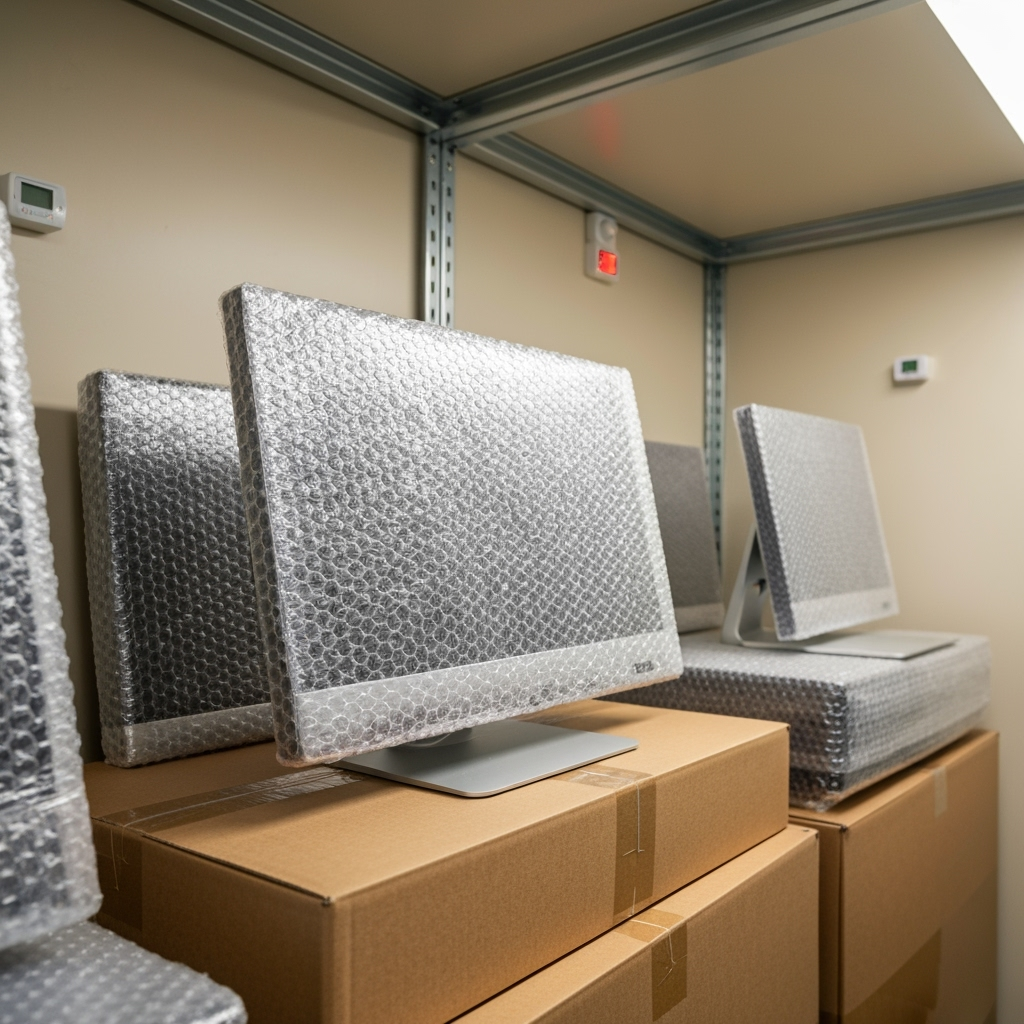
Gaming Consoles and Entertainment Systems
Use original packaging when possible, or wrap individually in bubble wrap and pack in boxes with adequate cushioning material.
Using Climate-Controlled Storage for Electronics
When your move involves temporary storage, climate control is crucial for electronic equipment. Here’s why:
- Prevents damage from temperature fluctuations
- Controls humidity levels that could harm circuitry
- Protects against dust and debris
- Maintains consistent environmental conditions
Best Practices for Transport
During the actual move, follow these guidelines:
- Load electronics in climate-controlled vehicles when possible
- Keep devices away from direct sunlight
- Avoid stacking heavy items on top of electronics
- Use shock-absorbing materials in the moving vehicle
- Consider insurance for valuable equipment
Setting Up in Your New Space
Once you’ve arrived at your destination:
- Allow electronics to acclimate to room temperature before powering on
- Check for any physical damage before connecting
- Follow your labeled connection diagrams
- Test each device individually before full setup
When to Consider Professional Help
Consider hiring professional movers specializing in electronics when:
- Moving expensive or sensitive equipment
- Dealing with complex setup configurations
- Requiring specialized packing materials
- Moving large quantities of electronic equipment
Storage Solutions for Different Timeframes
Whether you need short-term or long-term storage, choose the right solution:
Short-Term Storage (1-3 months)
- Climate-controlled storage units
- Original packaging when possible
- Easy access arrangement for frequently needed items
Long-Term Storage (3+ months)
- Premium climate-controlled units
- Additional protective packaging
- Regular check-ins to ensure condition
Essential Packing Supplies Checklist
Gather these supplies before starting your packing:
- Anti-static bags and bubble wrap
- Custom-sized boxes and foam inserts
- Cable ties and labels
- Moisture-absorbing packets
- Moving blankets
- Packing tape and scissors
Protecting Your Investment
Remember that proper storage and moving techniques protect not just your equipment, but your investment in technology. Consider these additional protective measures:
- Document serial numbers and take photos for insurance
- Keep receipts and warranty information accessible
- Consider additional insurance coverage for high-value items
- Track environmental conditions in storage
Final Tips for Success
Make your technology move successful by:
- Planning ahead and creating a detailed timeline
- Having a backup plan for essential devices
- Keeping important cables and components together
- Maintaining an inventory of all packed items
With proper planning and care, your electronics can safely make the journey to your new location. Remember that investing time in proper packing and storage techniques can save you money and stress in the long run.


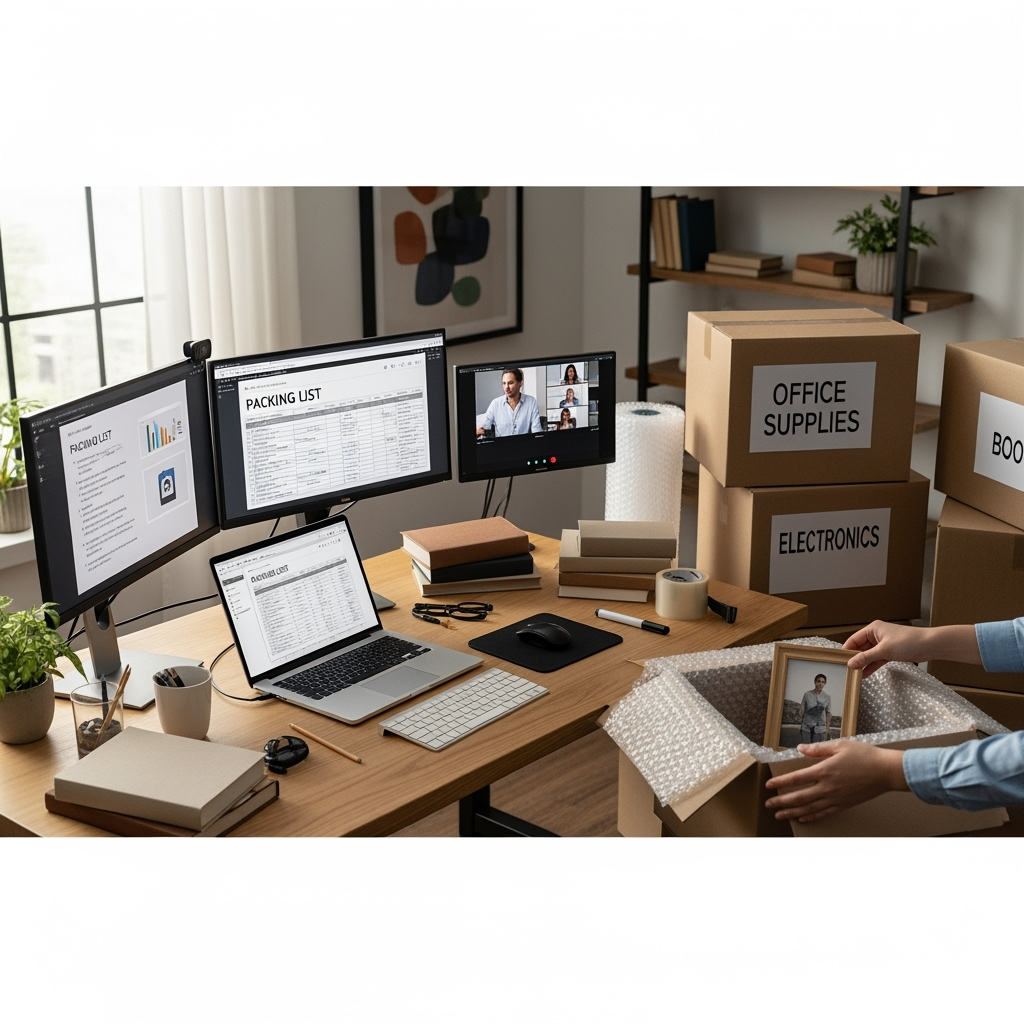

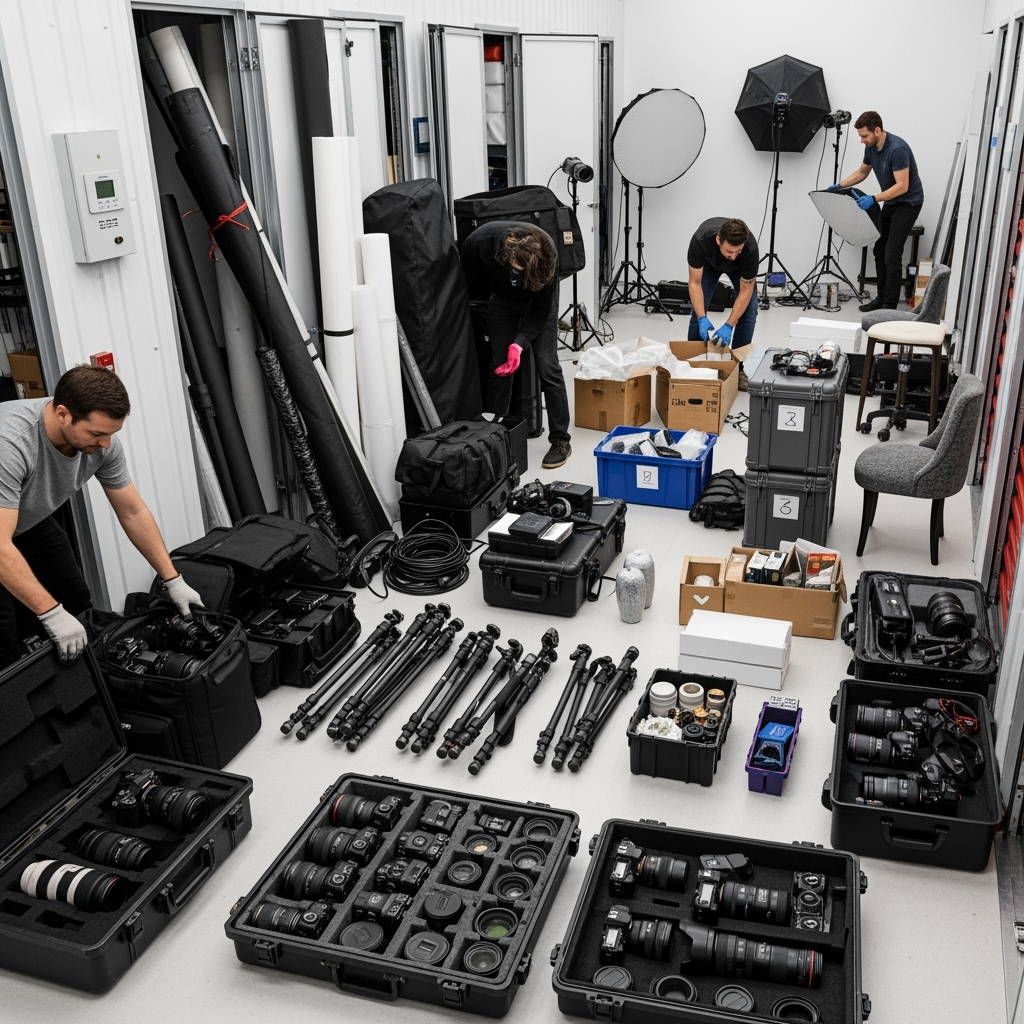
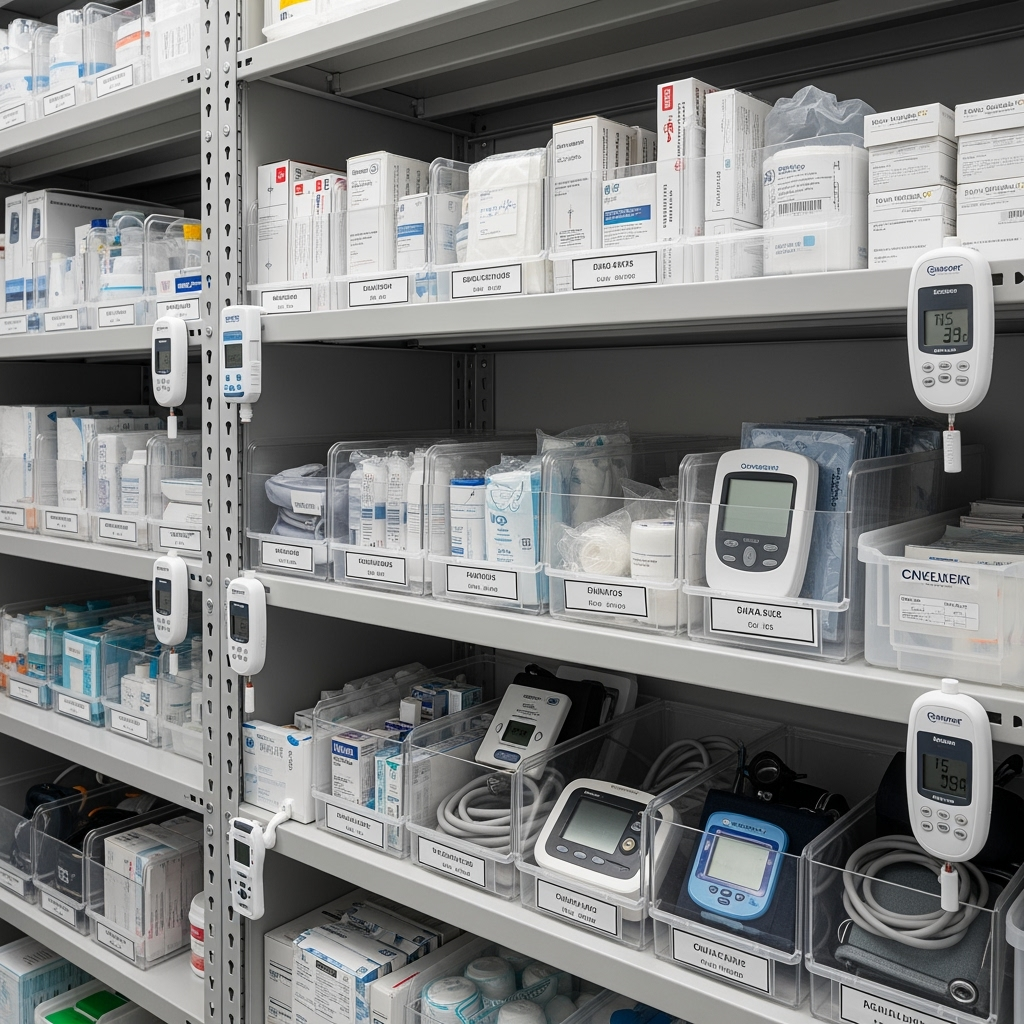
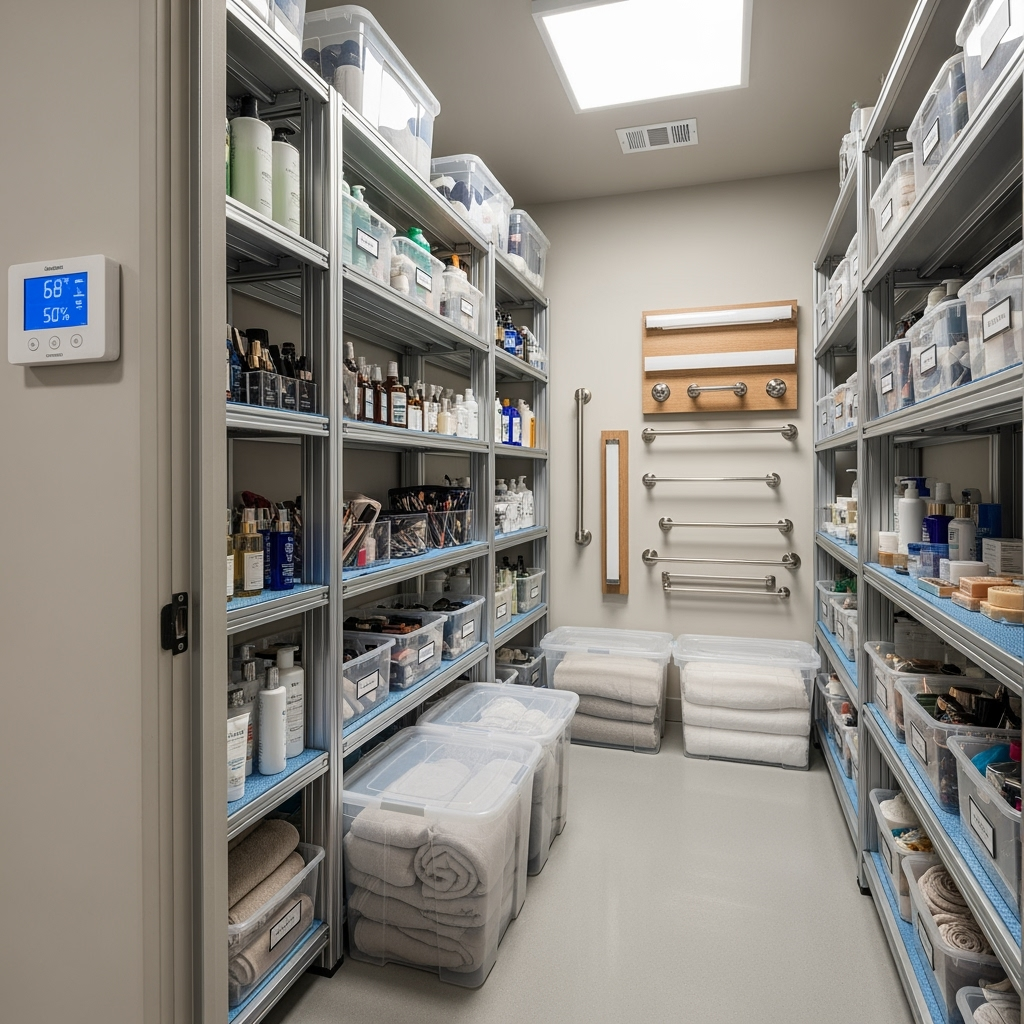
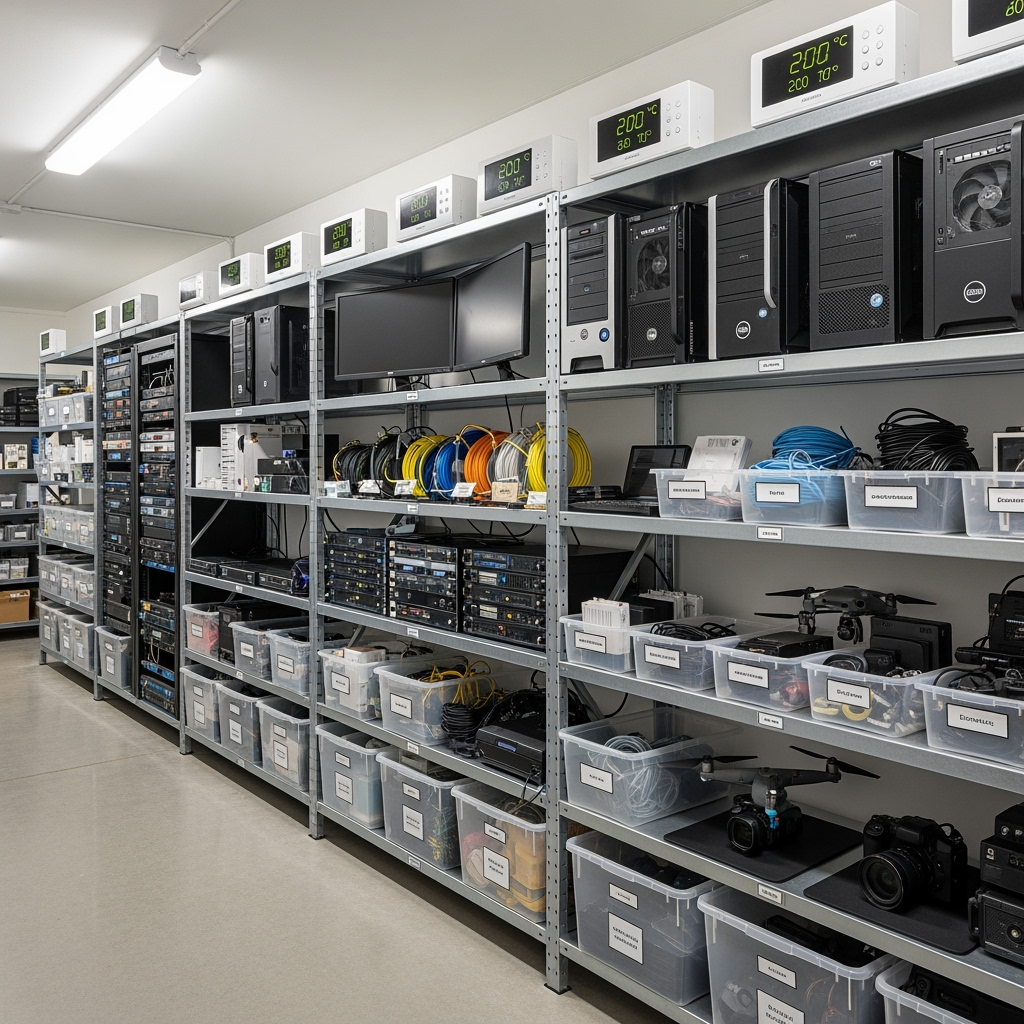
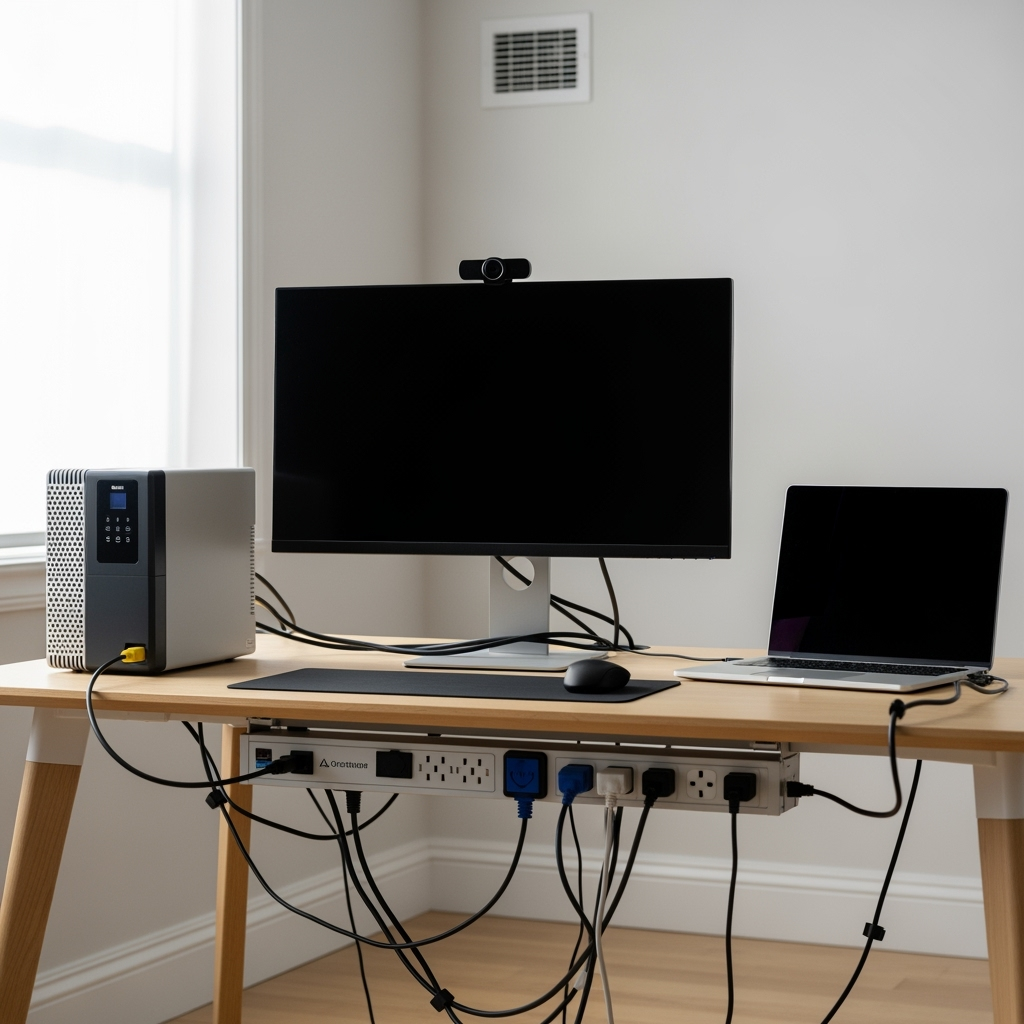
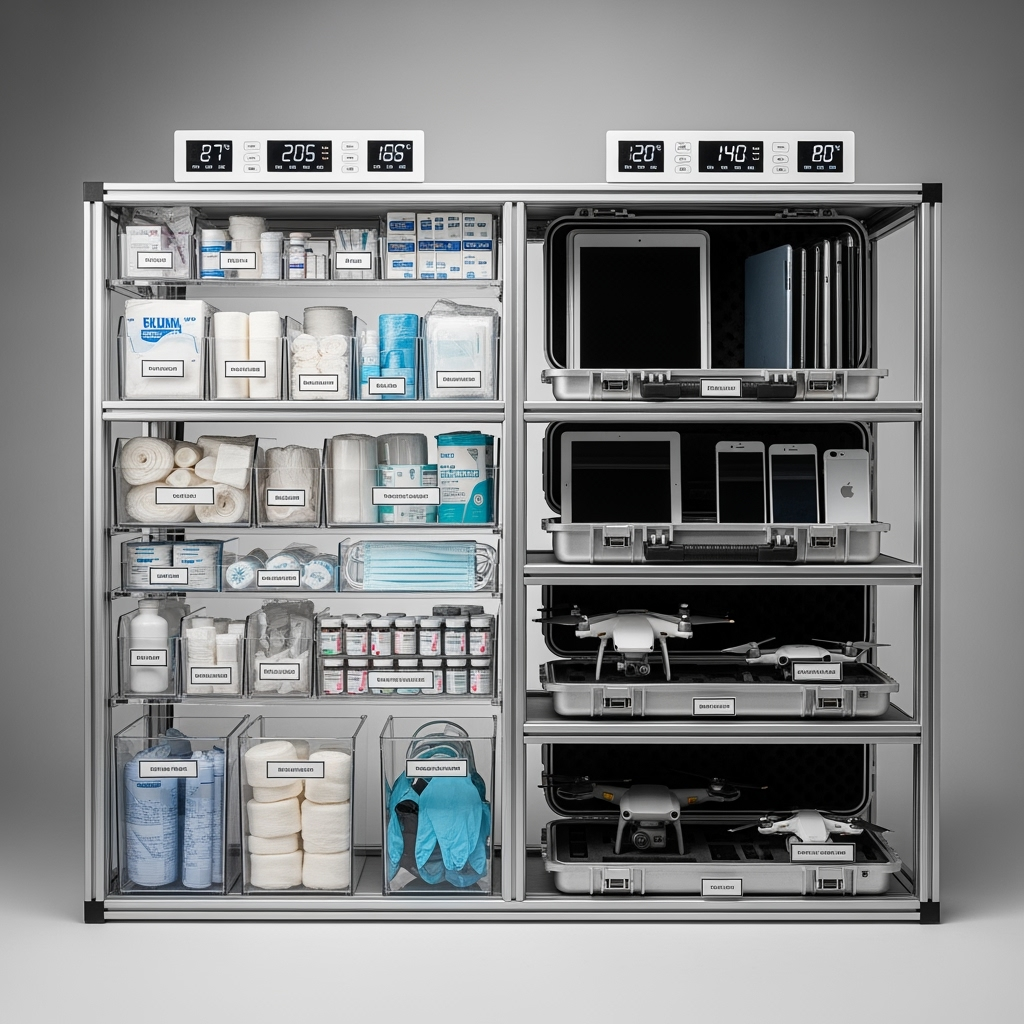
Leave a Reply